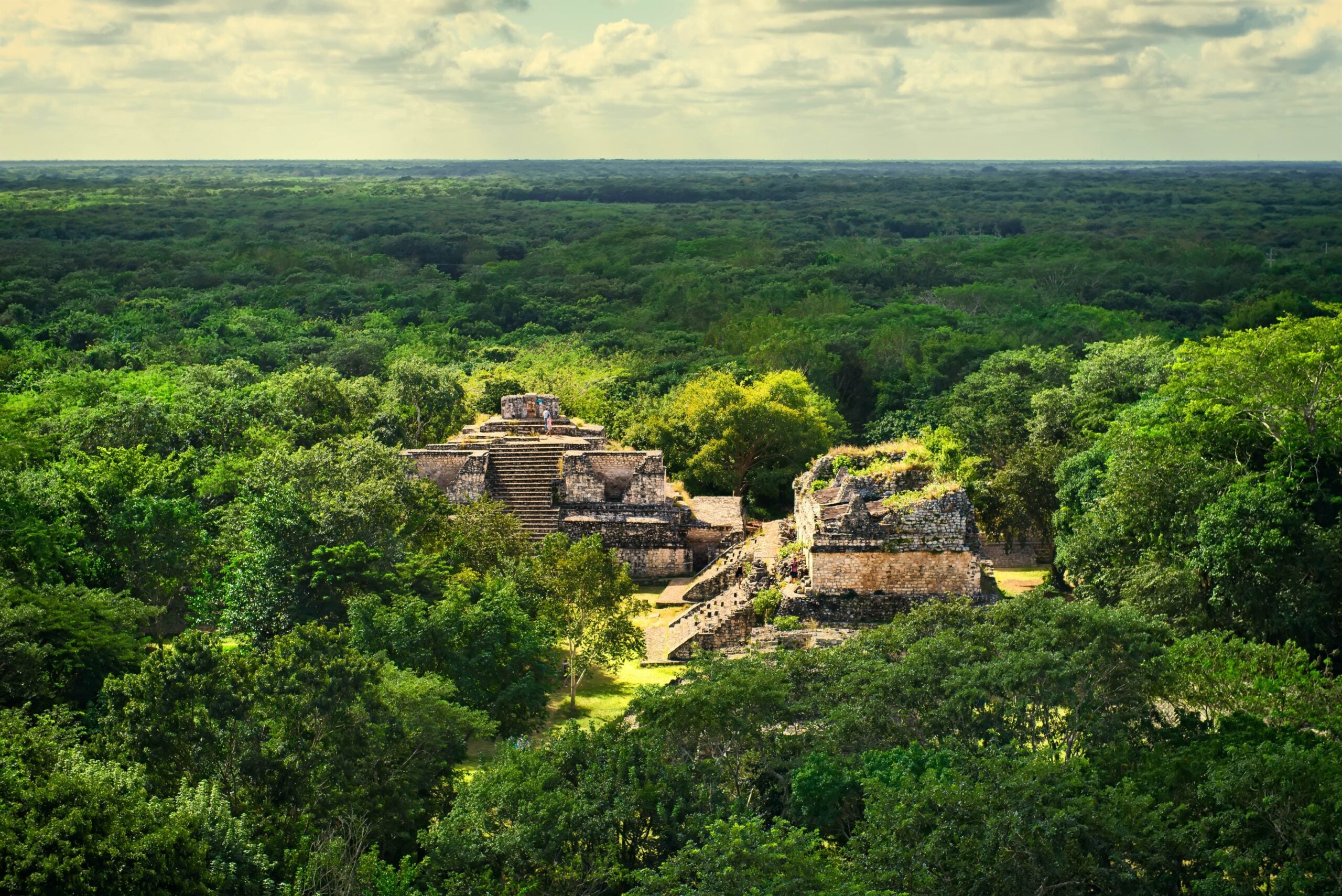
Environment & Sustainability Abroad
Solving global environmental and sustainability challenges requires global perspectives. Georgetown University is pleased to offer learning experiences exploring environment and sustainability in multiple sites around with partnerships including the Office of Global Education and GU-Qatar.
Slide 1 of 7
Slide1 of 7
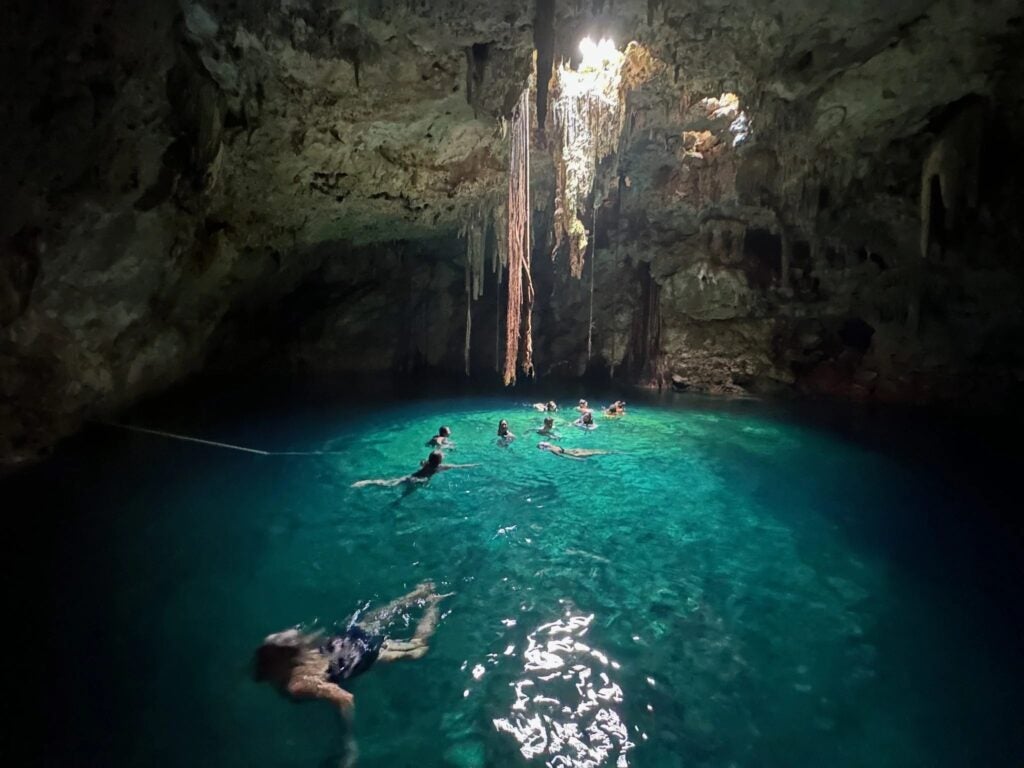
Slide2 of 7
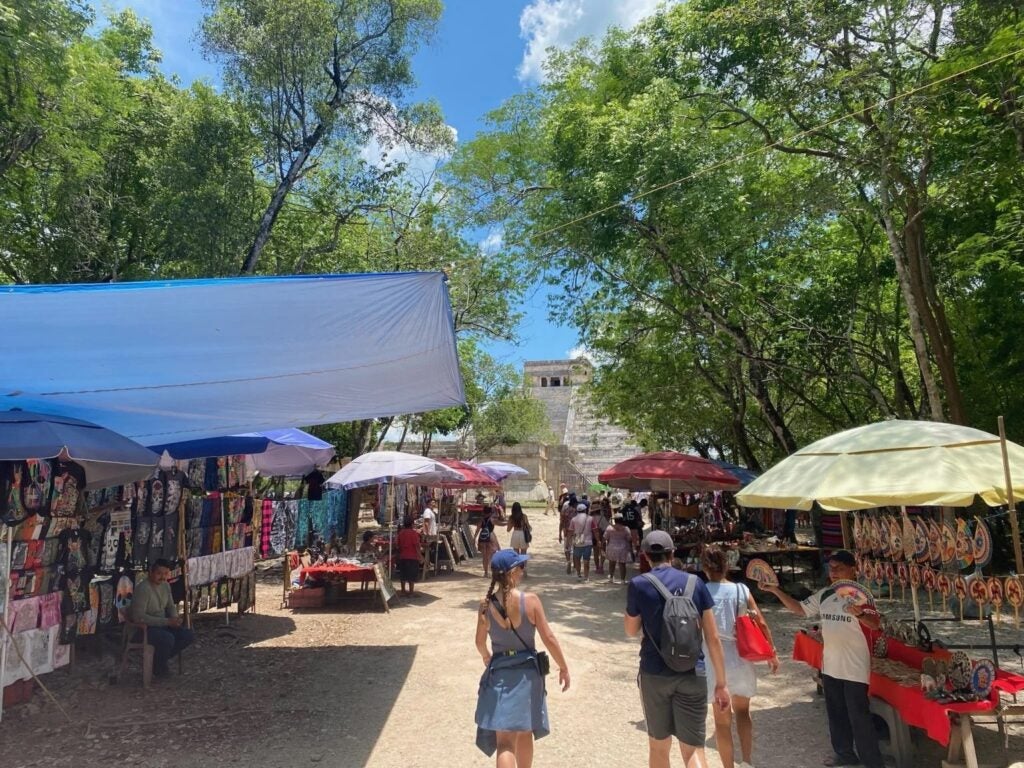
Slide3 of 7
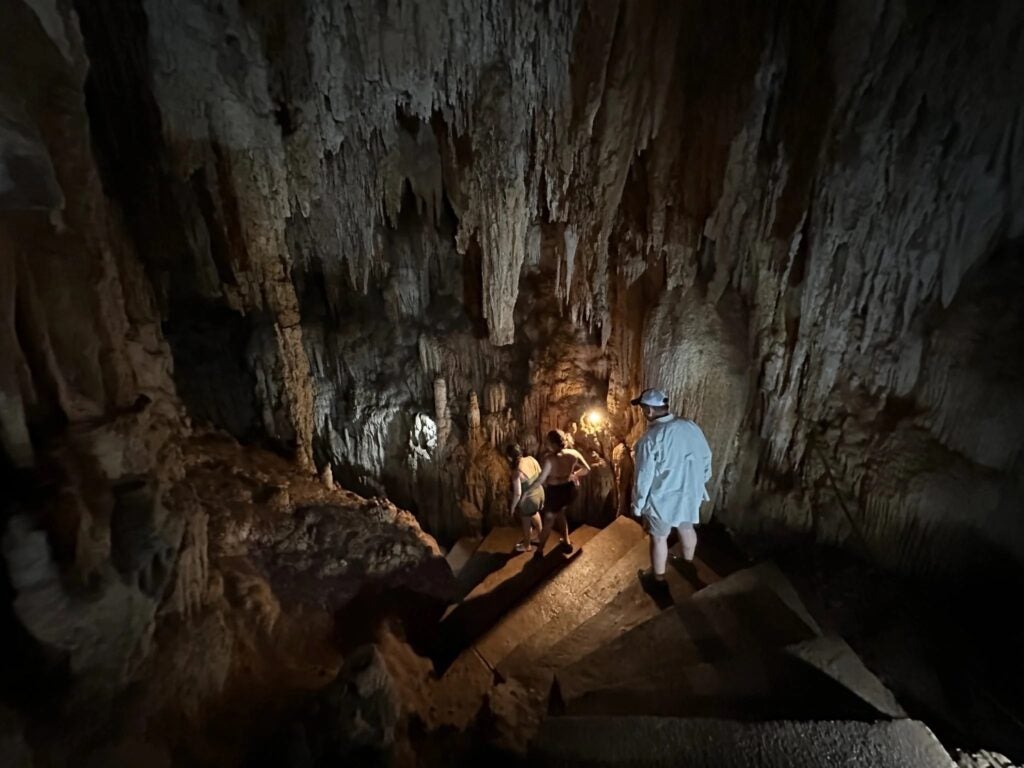
Slide4 of 7
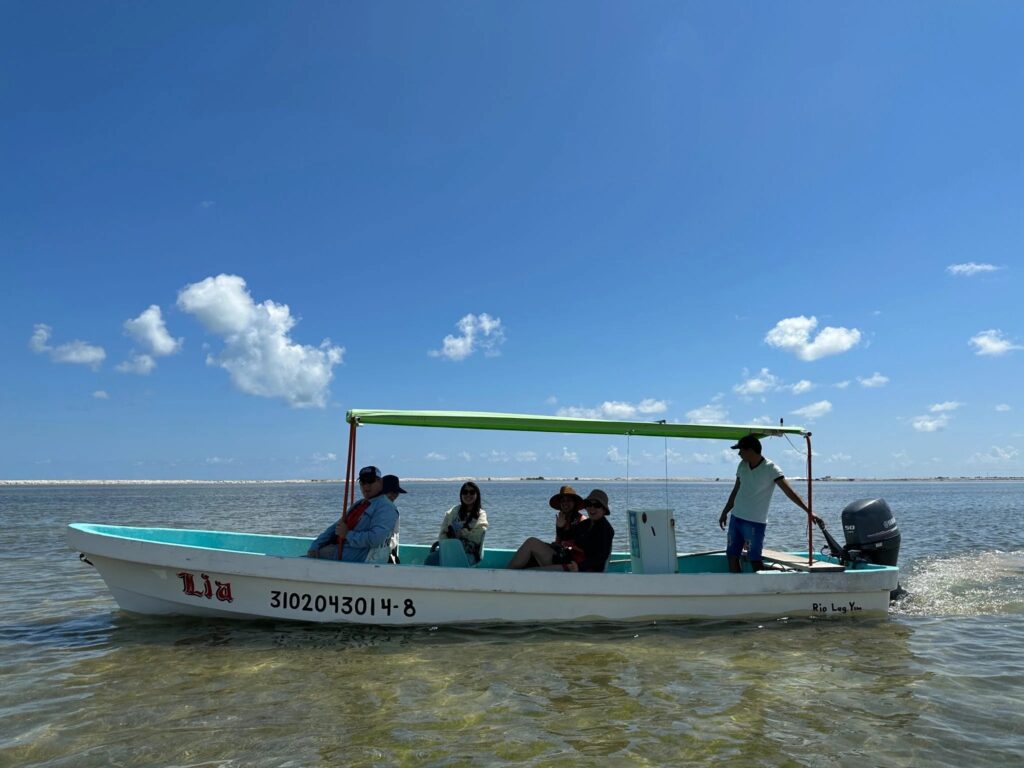
Slide5 of 7
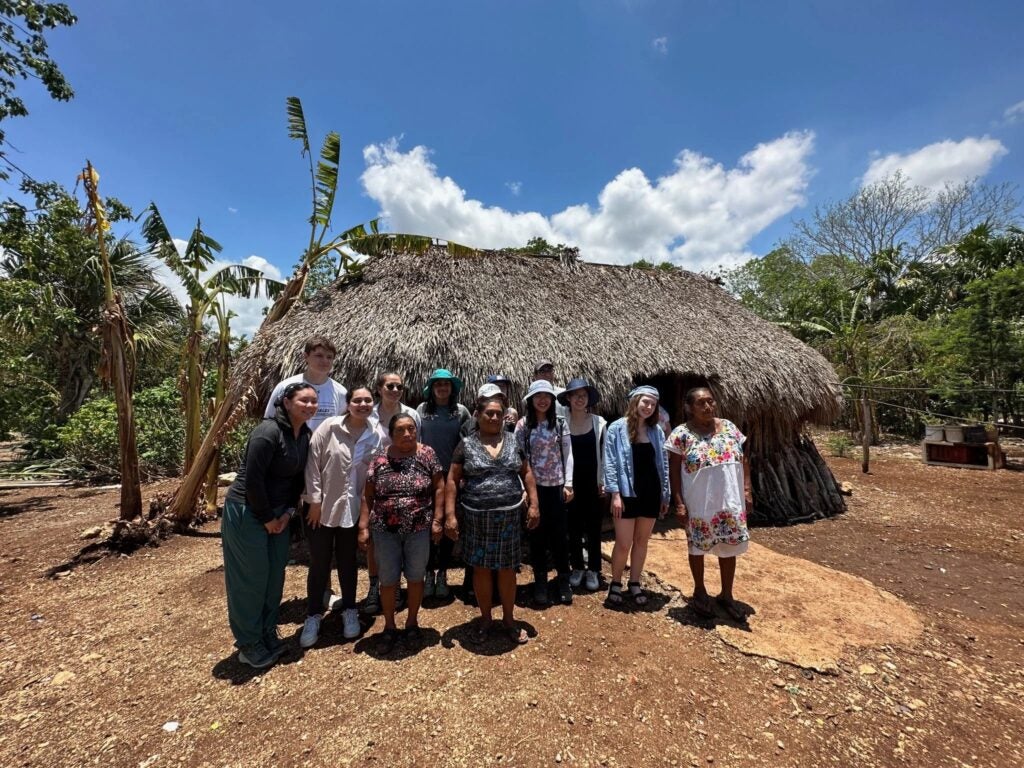
Slide6 of 7
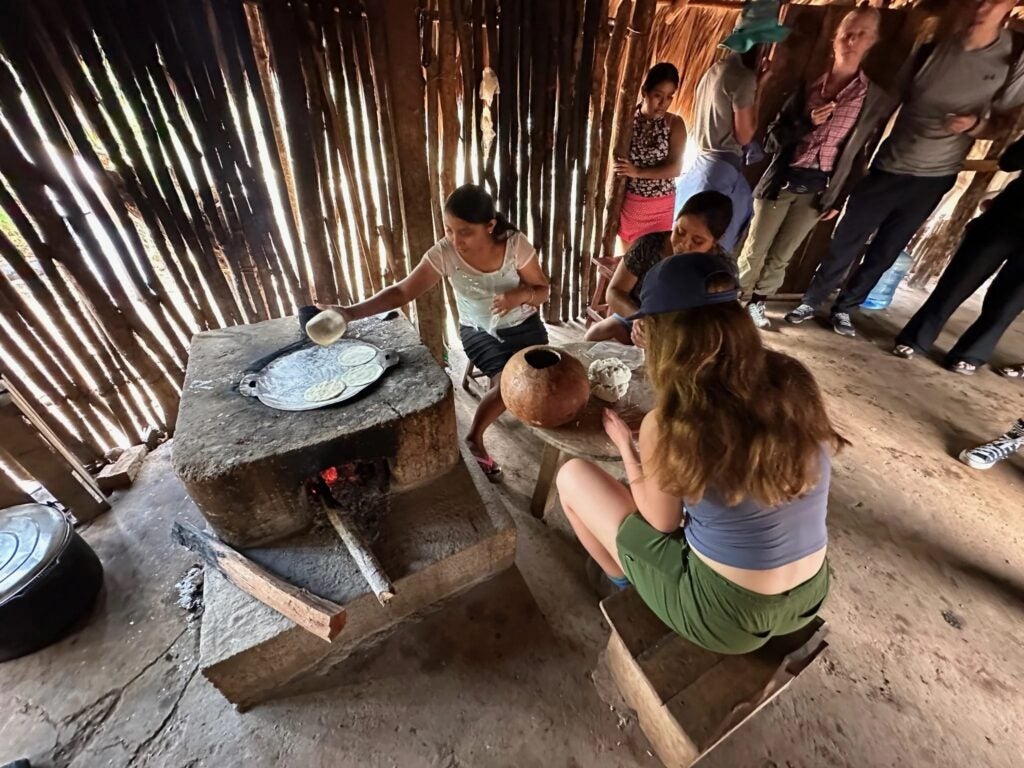
Slide7 of 7

End of carousel collection.
After a Trip to the Yucatan, Undergraduates Find Their Plans Shaken Up
Immersive international studies abroad can change the course of your studies—and your life—for the common good. Learn about the experiences of undergrads who went to the Yucatán with the Earth Commons and experienced new possibilities in environment, sustainability, and personal development.
Read moreCourses
The following is a list of previously offered faculty-led courses abroad. We are no longer accepting applicants at this time. Please check back for opportunities.
Adaptation in a Climate Change Hotspot (Greece)
Course Objectives:1. Understand the basics of climate change and its connections to water, food, and social/economic development.
2. Communicate environmental issues in Greece, such as climate change and ecological degradation, to both scientific and non-scientific audiences convincingly.
3. Develop policy and economic recommendations based on environmental science and sustainability principles.
Teaching Components:
1. In-Depth Academic Study: Explore foundational concepts in climate and environmental change in Greece through rigorous in-class discussions, lectures, and research projects.
2. Experiential Learning: Immerse in a two week-long on-the-ground experience in Greece, engaging with diverse ecosystems, local communities, and environmental organizations. Apply classroom knowledge to real-world scenarios, fostering a deep understanding of environmental challenges.
3. Independent Study: Undertake an independent group-based research project, guided by the course instructor, focusing on one of five project prompts. The project deliverables will include a GIS-based storymap and presentation of our work (virtually during the Fall semester).
Humans and Nature (Cape Town, South Africa)
The Cape Town: Humans and Nature program is part of a thematic series of OGE programs that focuses on human and environment interactions on a global scale.
Program Description
Are humans part of or separate from nature? Do our current relationships to our natural surroundings affect how we live our lives? How do various perspectives on these fundamental questions affect the way human societies interact with and use nature? In this three-week study abroad program, you will travel to Cape Town, South Africa to explore answers to these questions and use them to understand how humans both shape and are shaped by the ecological systems in which modern societies exist.
Hosted by the University of Cape Town’s International Academic Programmes Office, the program will delve into the principles and practices of nature conservation, the use of natural resources, and the impacts of human activities on local wildlife. Students should be prepared for an immersive experience, involving lots of time in nature as well as visiting animal sanctuaries and nature preserves.
Georgetown Faculty Director(s):
Angela van Doorn (Assistant Teaching Professor, Department of Biology)
Application Deadline:
02/15/2023
Ecology, Culture and Sustainability in the Yucatan (Merida, Mexico)
Ecology, Culture and Sustainability in the Yucatan is part of a thematic series of OGE programs that focuses on human and environment interactions on a global scale.
Program Description
The Yucatan peninsula’s forest ecosystem is the largest continuous area of tropical vegetation in the Americas after Amazonia, making it a vital carbon sink for the planet. The area has also been home to the Mayan civilization for the past 8,000 years, and a vibrant indigenous culture persists there.
On this intensive two-week program, you will explore the ecology of tropical forests and mangroves, and their connections to the culture of the current and pre-European Mayan communities. You will engage with researchers and local community members to hear their perspectives on real-world environmental and sustainability issues while gaining a deep understanding about the challenge of balancing short-term human needs with the long-term health of environmental systems.
Georgetown Faculty Director(s):
Peter Marra, PhD (Director, The Earth Commons Institute; Laudato Si’ Professor, Department of Biology).
Humans and Nature (Cape Town, South Africa)
The Cape Town: Humans and Nature program is part of a thematic series of OGE programs that focuses on human and environment interactions on a global scale.
Program Description
Are humans part of or separate from nature? Do our current relationships to our natural surroundings affect how we live our lives? How do various perspectives on these fundamental questions affect the way human societies interact with and use nature? In this three-week study abroad program, you will travel to Cape Town, South Africa to explore answers to these questions and use them to understand how humans both shape and are shaped by the ecological systems in which modern societies exist.
Hosted by the University of Cape Town’s International Academic Programmes Office, the program will delve into the principles and practices of nature conservation, the use of natural resources, and the impacts of human activities on local wildlife. Students should be prepared for an immersive experience, involving lots of time in nature as well as visiting animal sanctuaries and nature preserves.
Georgetown Faculty Director(s):
Angela van Doorn (Assistant Teaching Professor, Department of Biology)
Application Deadline:
02/15/2023
Politics of Marine Conservation on the Great Barrier Reef (Queensland, Australia)
The Great Barrier Reef: Politics of Marine Conservation program is part of a thematic series of OGE programs that focuses on human and environment interactions on a global scale.
Program Description
Designated a UNESCO World Heritage Site for its extraordinary beauty and biodiversity, the Great Barrier Reef is a global environmental icon and home to one of the most diverse ecosystems on the planet. Despite its protected status, the Reef has become a symbol of the challenges facing humanity in balancing economic imperatives with environmental protection.
Enter the complex world of environmental politics and policy, where marine science and conservation efforts meet economic and political institutions to drive policy outcomes. This program will take you to Queensland, Australia, where the coastal city of Townsville will serve as your gateway to understanding the array of competing interests that affect the Great Barrier Reef. Here you will meet with local politicians, bureaucrats, activists, marine scientists, Indiginous peoples and “ordinary Australians” to understand varying perspectives on issues surrounding the protection and preservation of the Great Barrier Reef.
Through an integration of lecture, discussion, field research, and experiential activities, the course will use the Great Barrier Reef as a case study to examine the process of evidence-based policymaking, emphasizing the roles of vested interests, party politics, and political institutions.
Georgetown Faculty Director(s):
Alan Tidwell, Director of the Center for Australian, New Zealand and Pacific Studies (CANZPS)
Nature and Culture in Latin America (Quito, Ecuador)
Program Description
Delve into the world of language, literature, and culture in Latin America on Georgetown’s summer program in Quito, Ecuador. Alongside distinguished professors from Georgetown University and Universidad San Francisco de Quito (USFQ), you’ll immerse yourself in the study of Spanish, while exploring the deep connections between the culture(s) of Ecuador and the natural world. The program features a combination of classroom study on the USFQ campus, and extensive field experiences – including to a biodiversity research station in the Ecuadorian Amazon and in the Galapagos Islands – to explore how ecological diversity has shaped culture and society in Ecuador and throughout Latin America.
Georgetown Faculty Director(s):
Alfonso Morales-Front (Associate Professor, Department of Spanish and Portuguese)
